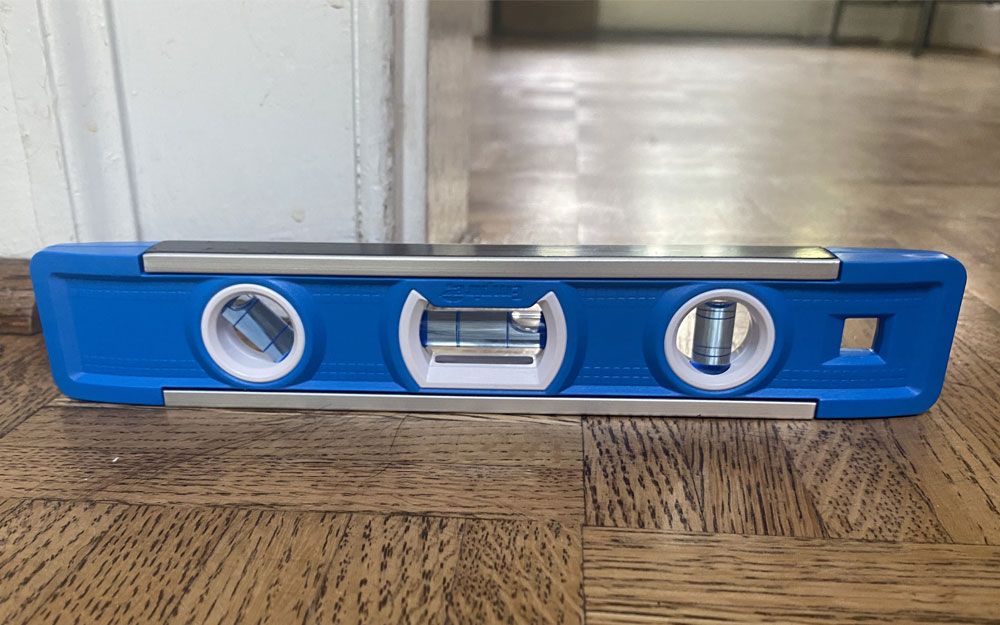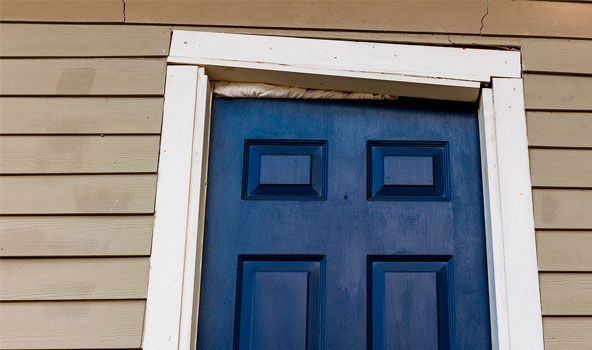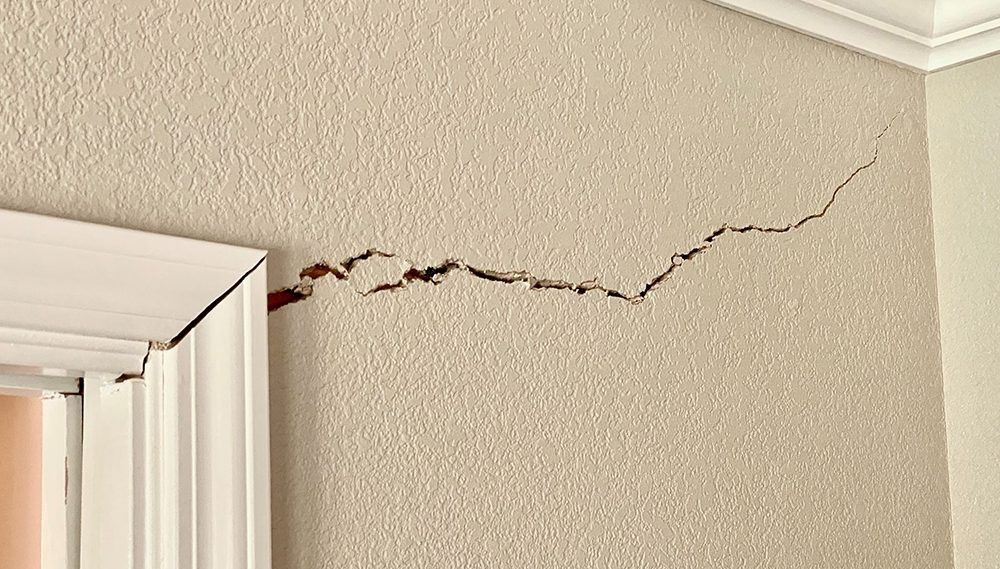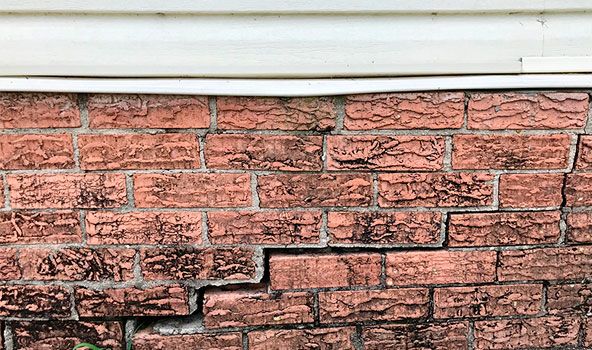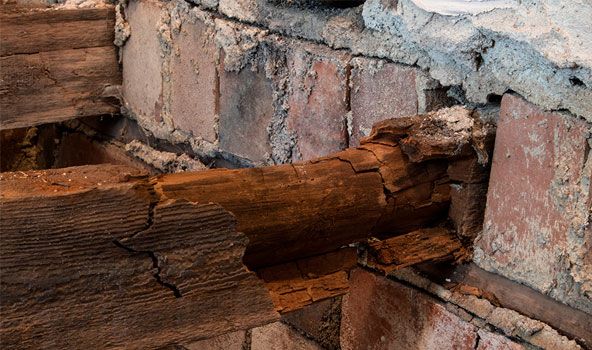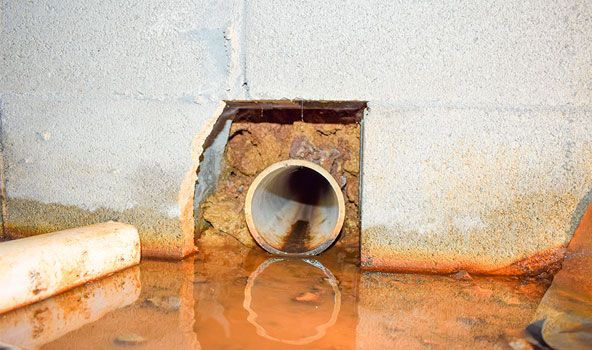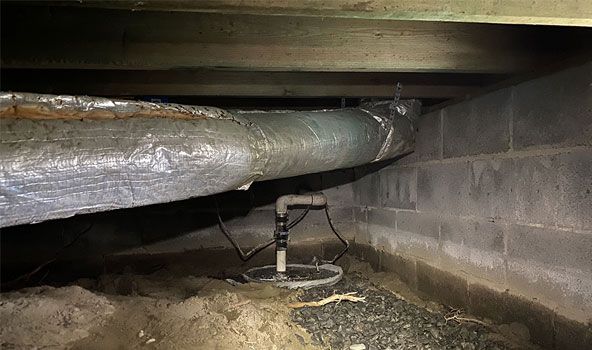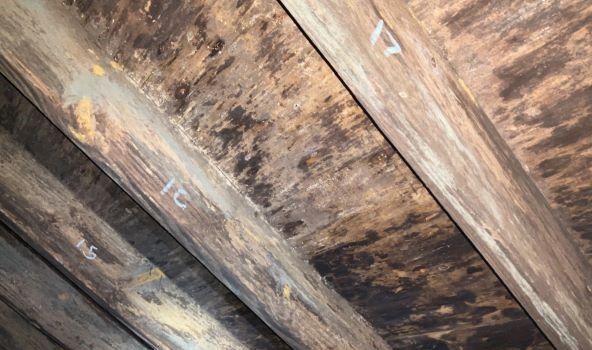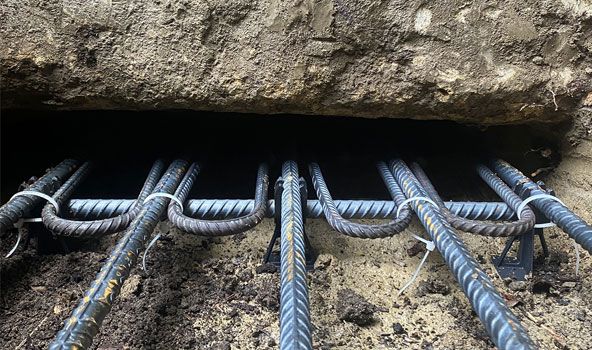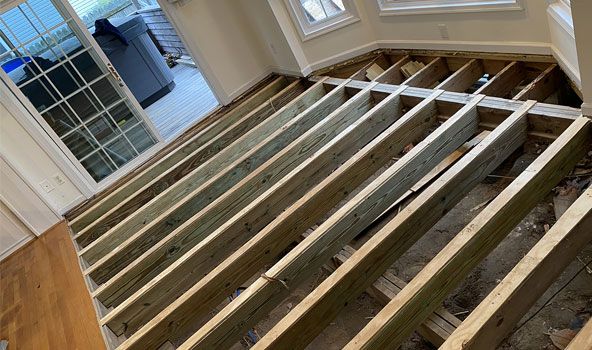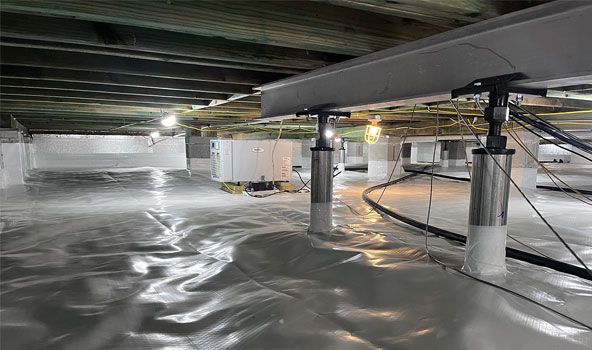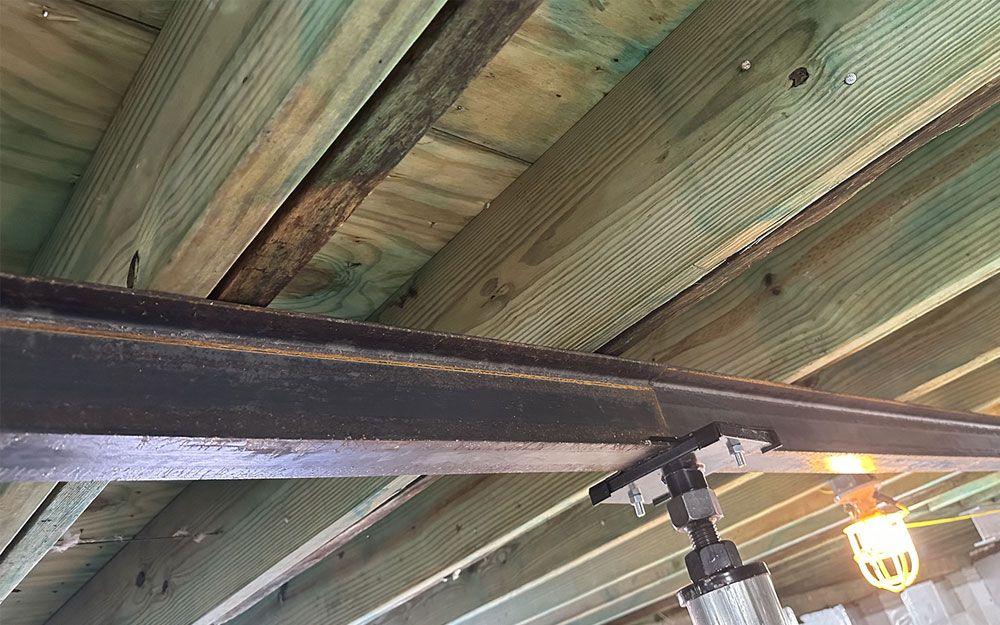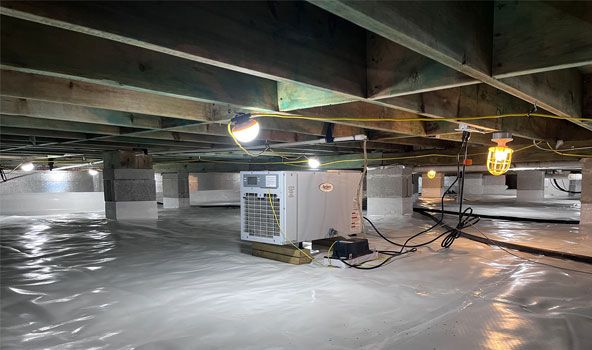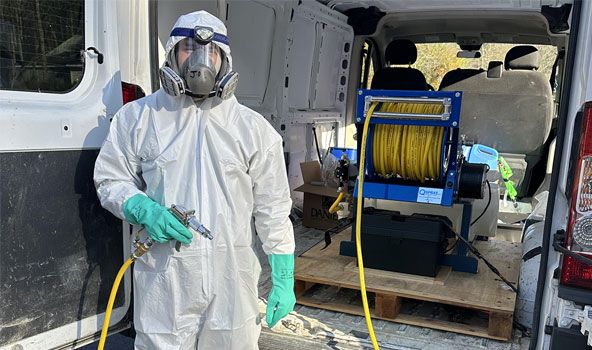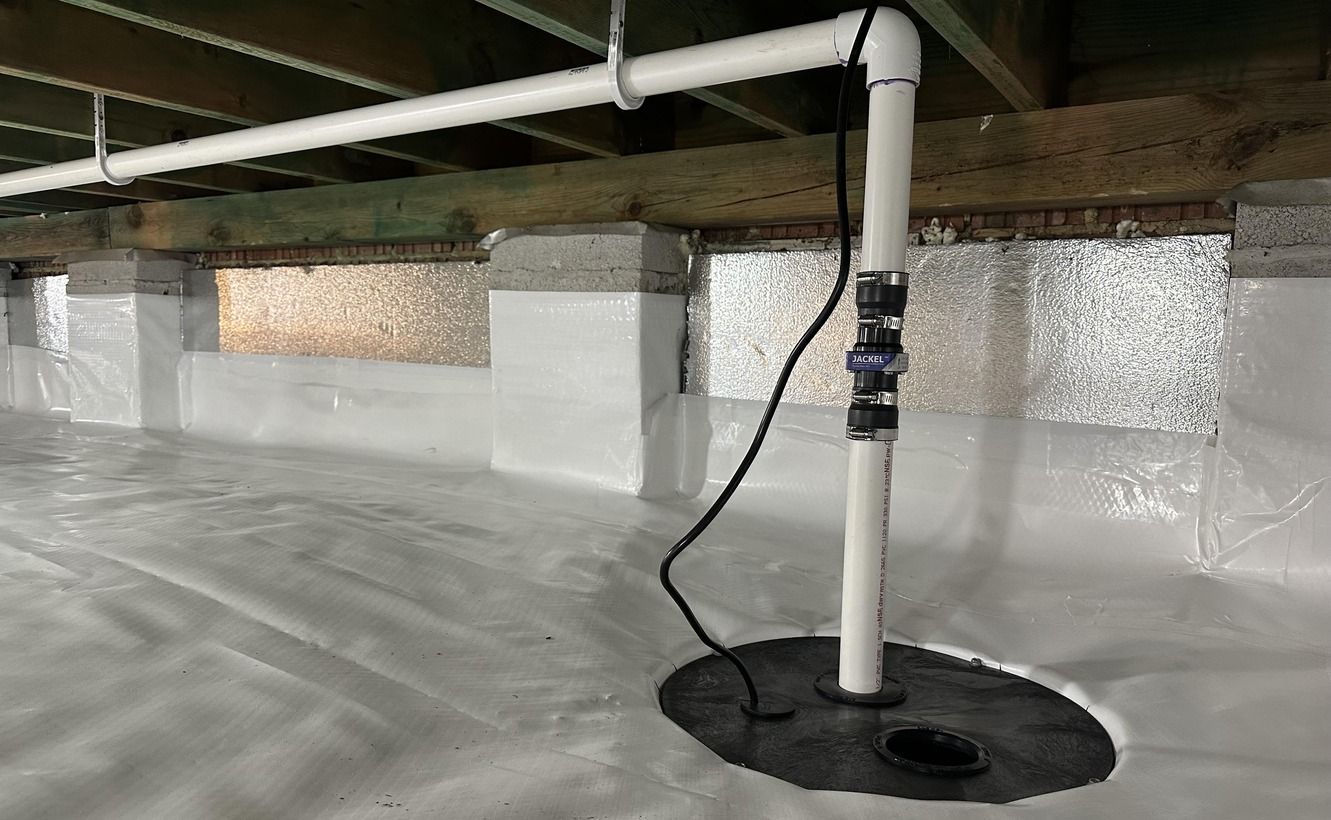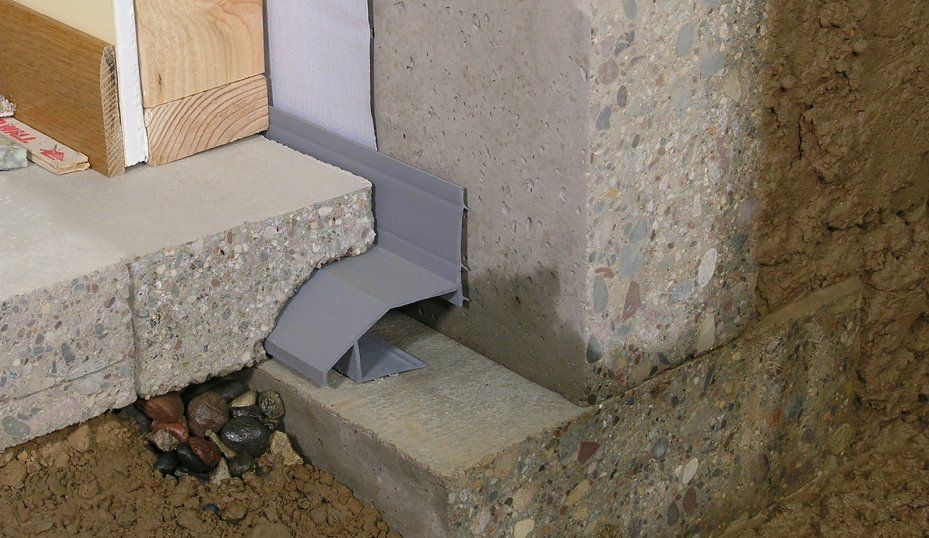REQUEST YOUR FREE INSPECTION
REQUEST YOUR FREE INSPECTION
Virginia Foundation Solutions
Foundation settlement is never something you wish to happen but when you begin noticing cracked bricks on your home, it’s time to consult with a professional foundation repair contractor.
Have you noticed cracked bricks or foundation cracks on your home? Are you seeing cracks, but are unsure if they are actually settlement? You’ve come to the right place.
This guide serves to educate you about the causes, signs, and best solutions in Virginia foundation repair today.
For more information, request a free inspection and estimate from one of our trained foundation repair experts. We’ll provide honest helpful feedback to help you repair your home.
How Do I Know If I Need Foundation Solutions?
Not every crawl space foundation is in need of repair services. There are several detectable signs that your crawl space may be in poor condition. If you notice any of these signs, be sure to contact our crawl space repair experts.
OUR REVIEWS Click Links To Access Reviews
VA Foundation Solutions, Guaranteed For Life.
Our engineered Virginia foundation solutions include lifetime guarantees, that transfer automatically to home buyers. We have helped thousands of families achieve the structural integrity they need to protect their family and home.
Our Reviews Reflect Our Commitment to Taking Great Care of Our Customers
-
“It was an easy decision to choose Bay Crawl Space over the three other estimates I had gotten—not only was the price reasonable based on my research, but Jamie was the only salesperson who described more than one option that I could choose. The scheduling was very smooth! I am confident that if I have any problems, I can call & they will resolve them.”
– Diane Taylor -
“Prompt, professional, and honest. I had an independent civil engineer out to inspect prior to the BAY CS&FR visit. I was afraid I might be oversold on repairs I didn’t need. This was not the case. BAY made the same observations and gave same explanations or better. Great job BAY on hiring honest and competent assessors. Very professional, will work with you again!”
– Zachary Frey -
“Our experience with Bay Crawl Space & Foundation Repair was outstanding. From first contact everything was smooth and made as easy as possible for us. We were kept informed every step of the process via email, phone, and/or text. The work was top-notch. The cost was extremely reasonable. We were impressed that Bay did not try to sell services that weren’t required.”– T.a. Lackey
Virginia Foundation Solutions
Foundation settlement is never something you wish to happen but when you begin noticing cracked bricks on your home, it’s time to consult with a professional foundation repair contractor and determine your need for Virginia foundation solutions.
Have you noticed cracked bricks or foundation cracks on your home? Are you seeing cracks, but are unsure if they are actually settlement? You’ve come to the right place.
This guide serves to educate you about the Causes, Signs, and Best Solutions in Foundation Repair today.
For more information, request a free inspection and estimate from one of our trained Foundation Repair Experts. We’ll provide honest helpful feedback to help you repair your home, Guaranteed for Life*.
VA Foundation Solutions: Causes of Settlement
In all truth, the causes of settlement are not always obvious, because all settlement happens below ground. We can’t actually see what’s happening underground right?
The best practice, is to simply assume that whatever happened, it was caused by inadequate soils under the footing. The only way a footing can be allowed to sink is because the soils under the footing are failing to support the foundation.
These are the most common causes of foundation settlement in VA:
TREE ROOT DECOMPOSITION
After cutting down large trees near the foundation, the tree roots can decompose, rot away, and open voids under the foundation.
STANDING WATER NEAR THE FOUNDATION
If standing water is held against the foundation, it can cause various problems increasing your chances for foundation settlement.
UNDERGROUND WATER RUNOFF
Running water under the foundation can slowly erode the soil under your footing over time and open large voids, leading to settlement.
WEAK COMPRESSIBLE SOILS (CLAYS, SILTS, PEATS)
Not all ground is meant to be built on. Weak soil types can sink under the weight of a home causing settlement.
SINKHOLES
Voids open up under the top layer of soil as underground water washes out the soil and creates openings below the surface. If the ground is collapsing under your foundation, it’s important to support the home on the strong soils underneath the affected soils with foundation push piers.
INSUFFICIENT COMPACTION UNDER THE FOOTING
If the supporting soils under the footing aren’t strong, they can sink under the weight of the home.
MOLES DIGGING HOLES
As moles dig tunnels around the yard, they soften the soils. If the soils under your foundation are softened and dug out, it can increase the chances for foundation cracks.
SHRINK SWELL SOILS (CLAYS)
Clay soils can shrink with long period of dryness and swell with an abundance of moisture. As clay shrinks due to dryness, it can open voids large enough to allow settlement.
Sign Of Foundation Settlement
SINKING UNEVEN FLOORS
Any time the floors sink or become uneven, it is known that your floor support is inadequate. If the sinking is observed along the exterior walls of the home, you likely will need some Virginia foundation solutions.
BRICK CRACKS OR FOUNDATION CRACKS
Cracked bricks, aka stair-step cracks, are the most common sign that your home is experiencing differential settlement issues. Once the foundation has cracked, the corner or weaker half of the home can be allowed to sink. This sinking is what causes most brick cracks. If your home has experienced settlement cracks, it’s time to explore the best Virginia foundation solutions.
It’s very important to observe the difference between cracked bricks from settlement and from ‘Swollen Lintels’. A lintel is a structural piece of steel above doors, windows, garage doors, and foundation vents. These lintels can swell up to 2-3X their original size, lifting the home up above that opening. If the cracks arise from the top corners of an opening supported by a rusted lintel, you might not have settlement.
STICKING DOORS AND WINDOWS
As the home can settle, sink and shift, it can affect the floors, doors, and windows. If the doors and windows once worked in your home, but not do not, you might be experiencing foundation settlement.
GAPS IN BASEBOARD OR CROWN MOLDING
Often times, when a home sinks and settles, the floors, walls, and ceiling can drop at different rates. When our trained Expert Advisors observe gaps in the baseboard or crown molding, we make sure to assess the structure supporting these areas.
If you’ve noticed any of these warning signs in your home, call our office at 757-460-0444 for a free assessment of your foundation or request a free inspection here. We will provide no-pressure, no-obligation advice and solutions to give you peace of mind for your home.
Virginia Foundation Solutions: Best Repair Options
FOUNDATION PUSH PIERS
Push piers are a great option to stabilize a failed foundation. They essentially transfer the weight of the home off the problem soils and onto the strongest soils underground. Our push pier installers drive steel pipe deep into the ground until they reach strong stable soils. With our steel push piers, we can guarantee stabilization for 25 years, in the area of installation.
Push piers use the weight of the home to drive pipe down to the stable soils. For lightweight structures like decks or single story homes with siding, push piers don’t work because the weight of the structure is insufficient to drive the pipe through the layers of soil.
CONCRETE UNDERPINNING
Concrete underpinning is another great repair option to stabilize a failing foundation. Here, we can dig underneath the existing foundation, add steel rebar supports, and lock that support in with additional high strength concrete.
There are many designs contractors have used, many of which are prone to failure. A viable concrete underpinning solution requires special engineering and equipment to properly stabilize the foundation.
In many cases, concrete underpinning can be the best long-term, economical option for a settling foundation.
HELICAL PIERS
Additionally, for lightweight structures, another option is helical piers. These piers are like giant screws that are driven into the ground like screws and support the homes weight on the ‘helices’ or spiral coils.
For existing homes, helical piers are not ideal for a few reasons –
- Exhaustive soil samples are needed to ensure the ‘helices’ are driven into the strongest soil layers
- Roots and other obstructions can provide false pressure readings
- In retrofit applications, helical piers cannot be driven straight down but are driven down at an angle, compromising the support of the system.
Helical piers are excellent solutions for new construction on questionable soils.
Assessing Your Need for Virginia Foundation Solutions
Our Expert Advisors are trained to identify the causes, signs, and best repair options for any Virginia foundation solutions you might need. We service areas such as Grafton, Zuni, Ivor, Carrsville, and many more areas across Virginia. If you’re concerned about the integrity of your home, we offer free no-obligation, no-pressure inspections, and estimates.
Why Choose BAY for Your Foundation Solutions?
BAY Crawl Space & Foundation Repair is your one-stop solution for foundation solutions in Virginia Beach, Newport News, Suffolk, and the surrounding region. Our expert teams have over 400 collective years of experience fixing homes in the Hampton Roads, VA & NC region.
Our staff includes engineering experts, repair specialists, and a full support team ready to deliver exceptional customer service and a fast turnaround of your project. This is why BAY Crawl Space can offer great long-term warranties on the installation and materials for your repair.
You can learn more about BAY’s Virginia foundation solutions by taking advantage of our free crawl space and foundation inspection. Your inspection will give you a much better understanding of the issues at hand, along with your best options for repair.
Contact BAY Crawl Space & Foundation Repair today by filling out our online form or call 757-460-0444 for a free inspection.
About BAY Crawl Space & Foundation Repair
BAY is an award-winning crawl space and foundation repair contractor. We’re proud to service an 80-mile radius around our Norfolk, VA headquarters, Monday to Friday, from 7 am to 5 pm.
BAY is best known for having amazing reviews (quality & quantity), superior expertise, special methods, and affordable pricing options. We have the ‘Best of the Best’ on our team. Our All-Star Team delivers great customer experiences and the best quality for a great price.
Our reputation in the Hampton Roads community is with homeowners, engineers, city permitting offices, home services professionals, and online as a crawl space foundation repair contractor is outstanding.
- Google – 4.9 / 5 Rating, 1,000+ Reviews
- Angi – 4.9 / 5 Rating, 300+ Reviews
- Facebook – 5.0 / 5 Rating, 250+ Reviews
- HomeAdvisor – 4.9 / 5 Rating, 200+ Reviews
- Better Business Bureau – 4.95 / 5 Rating, 300+ Reviews
We have ranked #1 for crawl space repair in Hampton Roads for 8 years (Google: 2015-2023), ranked top 5% in the USA with Super Service Awards for 5 years (Angi: 2017-2022), were voted Best of Foundation Repair locally for 6 years (CoVA BIZ 2018-2023), were voted “Best of the Best” nationally in 2020 for the foundation repair category, and won the “Best Places to Work” award (CoVA BIZ).






